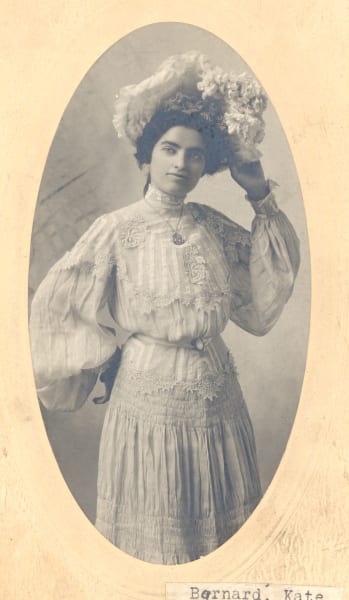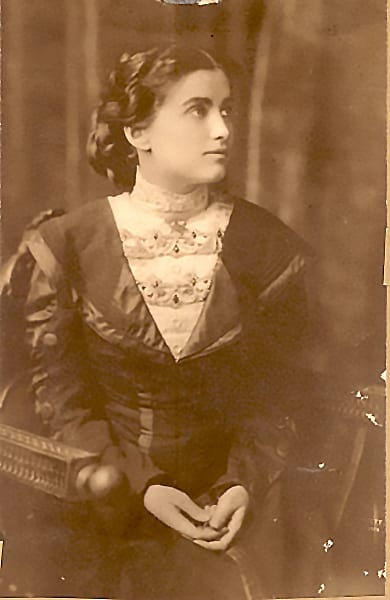Kate Barnard was a woman in politics long before it became a norm and had influence on Oklahoma’s early history … before she could even legally vote in 1920.
Barnard took up the causes of children and poor and incarcerated people, and she ultimately paid a high price when her convictions ran perpendicular with popular sentiments. She knew what needed to be done and she set out to do it.
Barnard was elected twice as Oklahoma’s first commissioner of charities and corrections, a position she lobbied for at the constitutional convention in 1906 as Oklahoma headed toward statehood. Her activism for the underserved didn’t stop with political service. Having taught early in her life, she was a proponent for education.
“She promoted compulsory education around the country, with many states adopting it before Oklahoma joined the union, directly from her influence and activism,” says Erin Brown, curator of collections at the Oklahoma Territorial Museum in Guthrie. “She was an advocate nationally and internationally for justice and prison reform. She advocated for a rehabilitation-type system instead of a strictly punitive one.”
Catherine Ann Barnard, Nebraska-born in 1875, experienced loss and loneliness as a child. This seemed to affect her outlook for the rest of her life. Her mother died when she was young and her father left her to be raised by family and neighbors.
Barnard was reunited with her father, who lived in Oklahoma City. She taught in one-room schoolhouses in Oklahoma Territory and, after tiring of that, held a “succession of clerical patronage positions in territorial government,” according to The Encyclopedia of Oklahoma History and Culture. This began her career in politics.
Barnard’s story has been buried for a long time because of a stance she took during her second term. As with the first time she ran for office, she was re-elected by a wide margin, but she took a stand for Native American children’s property rights. This unpopular opinion put her in opposition to some wealthy and influential people, such as William “Alfalfa Bill” Murray, a prominent politician eventually elected governor in 1930.

“The establishment resorted to ridicule and constant belittling of her in the media and in speeches and pressured her supporters to be less accommodating,” Brown says. “Eventually, her political capital was whittled away, and with it her popularity. The leaders of the political parties continued on without her and her influence – happy to allow her to sink into obscurity.”
In recent years, Barnard’s legacy has emerged. Brown says Barnard is memorialized with a statute at the state Capitol and recognized in the Pioneer Woman Museum in Ponca City, and an Department of Corrections facility is named for her. Barnard has reappeared in school curricula. Her influence is felt in state government today.
“Kate never stopped working for others,” Brown says. “Her motto was ‘Let faith, hope, and charity be the theme for your whole life.’ That is exactly what she did.”























